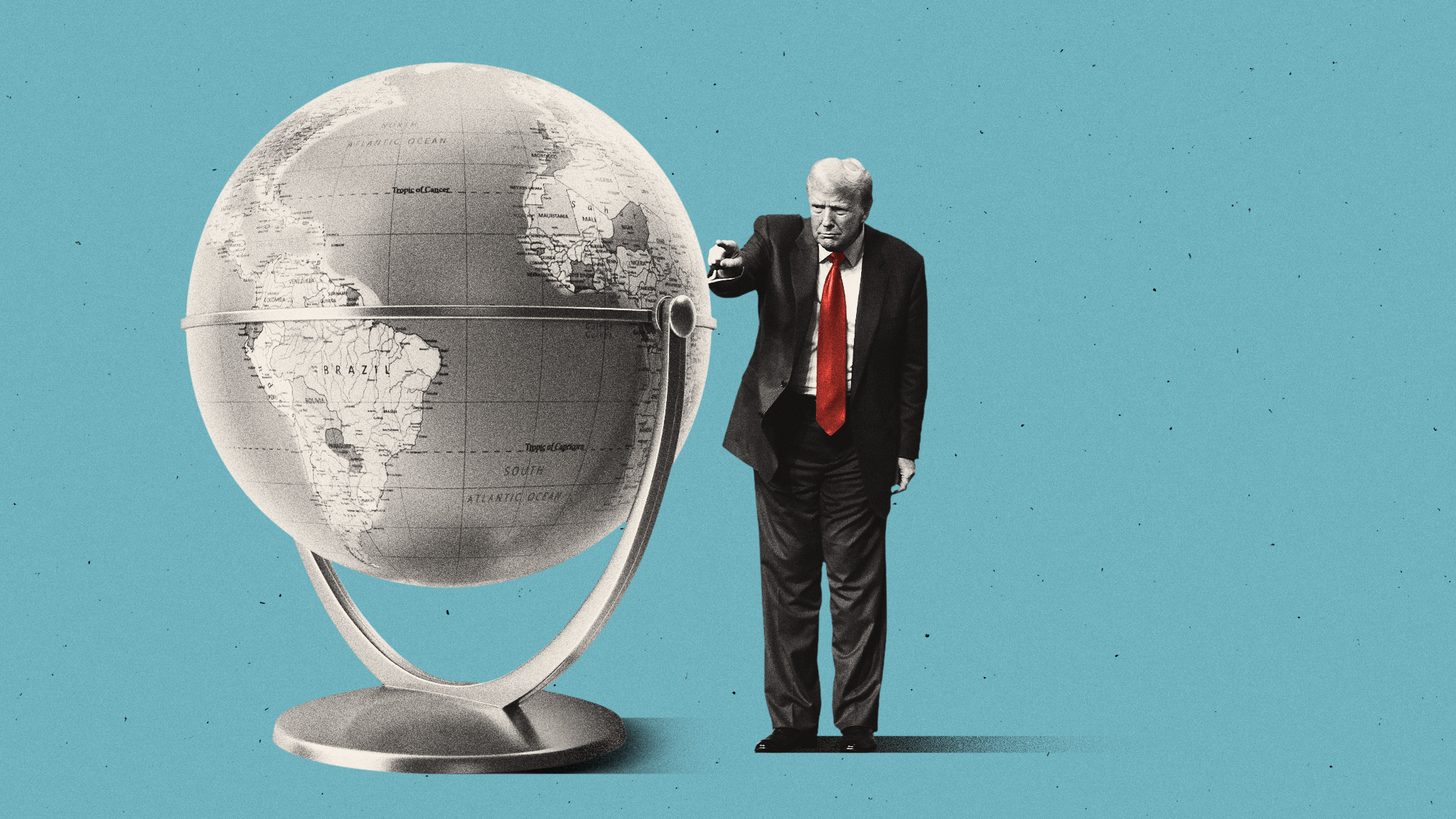The 3 U.S. negotiating errors that paved the way for the Taliban's return to power


A free daily email with the biggest news stories of the day – and the best features from TheWeek.com
You are now subscribed
Your newsletter sign-up was successful
The Taliban didn't regain control of Afghanistan overnight, and while their return to power was years in the making, the Trump administration's agreement with the group last year helped speed up the process, Lisa Curtis, the director of the Indo-Pacific Security Program at the Center for a New American Security, writes for Foreign Affairs.
Curtis zeroed in on three errors the negotiation team, led by Zalmay Khalilzad, made out of "desperation to conclude a deal" and put an end to the decades-long U.S. military involvement in Afghanistan. The first, she writes, was believing the Taliban would eventually sit down with the Afghan government to hash out a long-term political settlement. This led Washington to exclude Kabul from their talks with the Taliban in Qatar, which Curtis argues "prematurely conferred legitimacy on the" insurgents.
The next mistake, in Curtis' opinion, was that the U.S. didn't "condition the pace of talks on Taliban violence levels." Negotiations continued even amid escalating violence on the ground in Afghanistan, and ultimately the Taliban only had to "reduce violence for six days before signing the agreement." Finally, Curtis believes the Trump administration was operating under "wishful thinking" that the Taliban was seriously interested in political negotiations instead of fighting their way back to power. The U.S., therefore, forced Afghan President Ashraf Ghani to release 5,000 Taliban prisoners without simultaneously securing a "commensurate concession" from the group.
The Week
Escape your echo chamber. Get the facts behind the news, plus analysis from multiple perspectives.

Sign up for The Week's Free Newsletters
From our morning news briefing to a weekly Good News Newsletter, get the best of The Week delivered directly to your inbox.
From our morning news briefing to a weekly Good News Newsletter, get the best of The Week delivered directly to your inbox.
"The United States would have been far better off negotiating its withdrawal directly with the Afghan government, something that Ghani himself proposed in early 2019," Curtis writes. "By doing so, the United States would have avoided demoralizing its Afghan partners as Washington pulled back U.S. forces." Read about how Curtis thinks the Biden administration should deal with the Taliban going forward at Foreign Affairs.
A free daily email with the biggest news stories of the day – and the best features from TheWeek.com
Tim is a staff writer at The Week and has contributed to Bedford and Bowery and The New York Transatlantic. He is a graduate of Occidental College and NYU's journalism school. Tim enjoys writing about baseball, Europe, and extinct megafauna. He lives in New York City.
-
 Political cartoons for February 21
Political cartoons for February 21Cartoons Saturday’s political cartoons include consequences, secrets, and more
-
 Crisis in Cuba: a ‘golden opportunity’ for Washington?
Crisis in Cuba: a ‘golden opportunity’ for Washington?Talking Point The Trump administration is applying the pressure, and with Latin America swinging to the right, Havana is becoming more ‘politically isolated’
-
 5 thoroughly redacted cartoons about Pam Bondi protecting predators
5 thoroughly redacted cartoons about Pam Bondi protecting predatorsCartoons Artists take on the real victim, types of protection, and more
-
 Munich Security Conference: a showdown between Europe and Trump?
Munich Security Conference: a showdown between Europe and Trump?Today’s Big Question Report suggests European leaders believe they can no longer rely on the US for military support – but decoupling is easier said than done
-
 New START: the final US-Russia nuclear treaty about to expire
New START: the final US-Russia nuclear treaty about to expireThe Explainer The last agreement between Washington and Moscow expires within weeks
-
 Would Europe defend Greenland from US aggression?
Would Europe defend Greenland from US aggression?Today’s Big Question ‘Mildness’ of EU pushback against Trump provocation ‘illustrates the bind Europe finds itself in’
-
 Greenland, Colombia, Cuba: where is Donald Trump eyeing up next?
Greenland, Colombia, Cuba: where is Donald Trump eyeing up next?Today's Big Question Ousting Venezuela’s leader could embolden the US administration to exert its dominance elsewhere
-
 Did Trump just end the US-Europe alliance?
Did Trump just end the US-Europe alliance?Today's Big Question New US national security policy drops ‘grenade’ on Europe and should serve as ‘the mother of all wake-up calls’
-
 Trump peace deal: an offer Zelenskyy can’t refuse?
Trump peace deal: an offer Zelenskyy can’t refuse?Today’s Big Question ‘Unpalatable’ US plan may strengthen embattled Ukrainian president at home
-
 Vladimir Putin’s ‘nuclear tsunami’ missile
Vladimir Putin’s ‘nuclear tsunami’ missileThe Explainer Russian president has boasted that there is no way to intercept the new weapon
-
 Russia’s war games and the threat to Nato
Russia’s war games and the threat to NatoIn depth Incursion into Poland and Zapad 2025 exercises seen as a test for Europe
